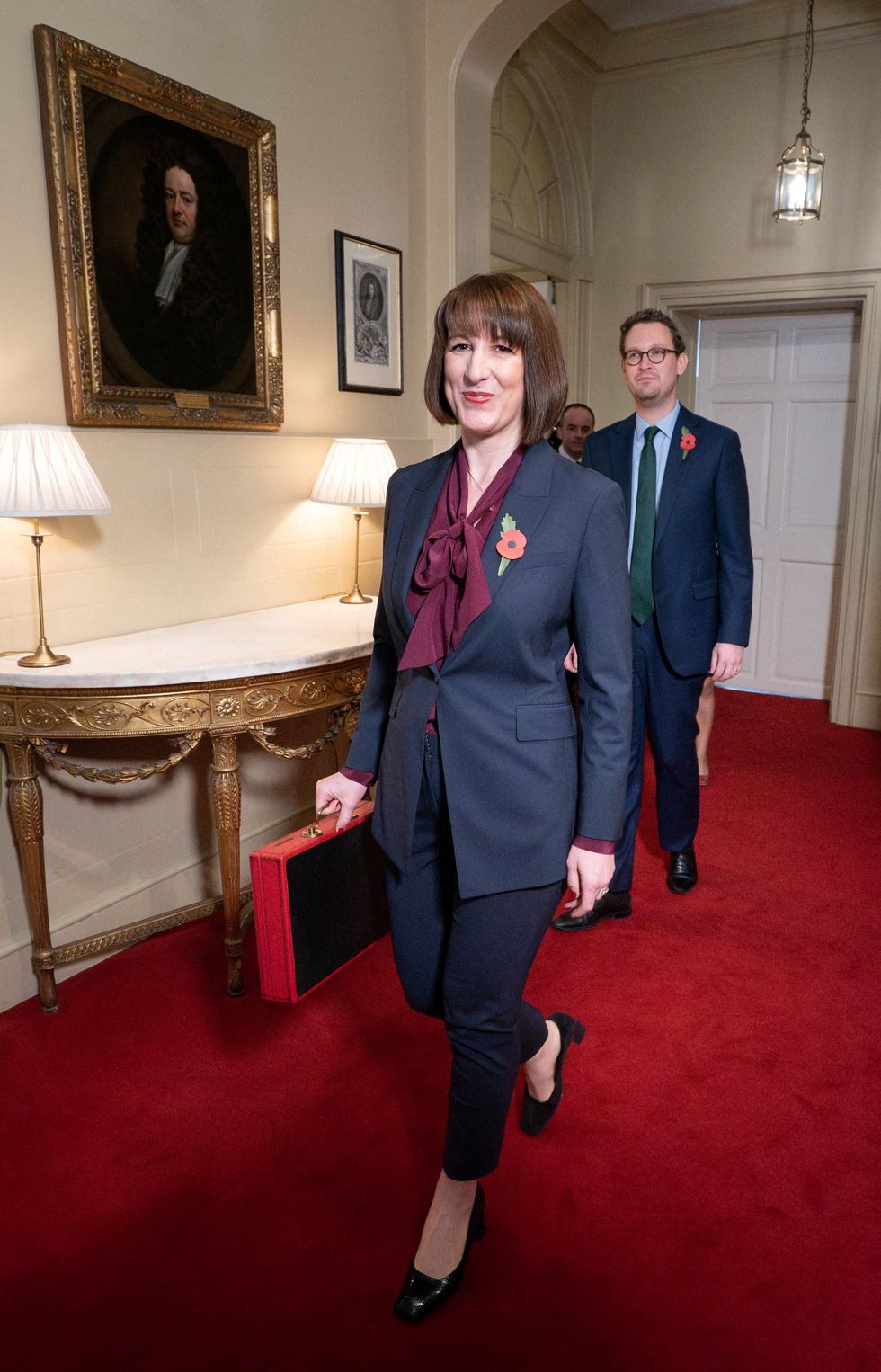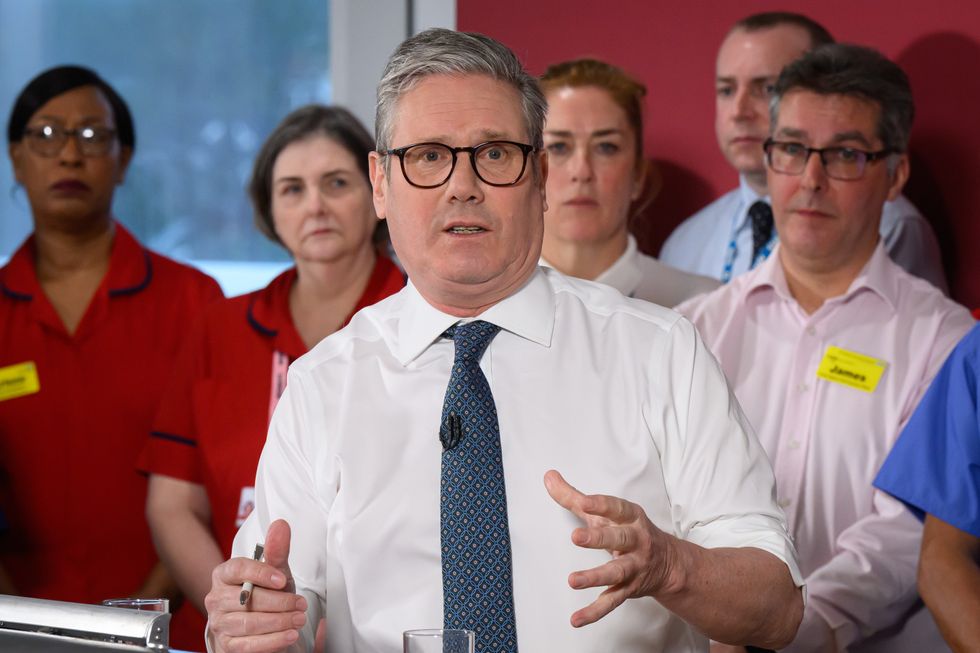Eliana Silver
Guest Reporter
The Treasury has ordered cabinet ministers to be "ruthless" in identifying public spending cuts as Rachel Reeves' Labour Government faces mounting pressure over its economic plans.
An internal letter from Chief Secretary Darren Jones, sent to cabinet colleagues on December 12, revealed that "difficult" decisions on budgets will be required in the upcoming spending review.
The directive comes amid a turbulent period in financial markets, with interest rates on 30-year government bonds reaching their highest level since 1998.
The Treasury's push for savings follows a week of market volatility that has put the Chancellor's borrowing rules at risk of being breached.

The spending review, due to conclude in June, is being dubbed "phase two" by the Treasury, following October's Budget which raised taxes by £40bn.
In his letter, Jones emphasised that growth was essential for improving public services "without raising taxes on working people" and called it the government's "primary mission" for this Parliament.
"Spending Review 2025 cannot be a business-as-usual spending review," he wrote, stressing the need for "ruthless prioritisation" within challenging fiscal constraints.
The Chief Secretary outlined a comprehensive approach to reviewing expenditure, stating: "Together, we will conduct a full review of every line of government spending to assess whether it is a priority for this Government and represents value for money."
MORE LIKE THIS:
He noted that while some decisions would be "difficult," the public expects the Government to "root out government waste and ensure their taxes are being spent on their priorities."
The zero-based review will examine all spending lines from scratch, marking a departure from traditional budget planning.
The spending review was already expected to require departments to make efficiency savings of five per cent of their budgets.
Key priorities outlined in Sir Keir Starmer's "Plan for Change" are set to receive protected funding, including NHS waiting lists, early years education, and police numbers.
The plan also prioritises raising household income, building 1.5 million homes and decarbonising electricity supply.
However, unprotected government departments face greater risk of cuts, particularly those funding courts, local councils, and welfare support.
Reeves increased day-to-day public spending from one per cent to 1.5 per cent annually in real terms in her Budget.
Much of the £40bn raised was allocated to the NHS and education, with funding front-loaded over two years.
Economists have warned that subsequent budget cuts for unprotected departments could mirror the austerity programme of former Tory chancellor George Osborne.
Signs of economic challenges have emerged since Labour took office, with business confidence declining and growth forecasts deteriorating.
Inflation is showing signs of falling more slowly than anticipated, while the pound has weakened against other currencies.
The market movements suggest international investors are becoming wary of the UK market.

Some Labour colleagues have begun expressing concerns about Reeves's economic decisions following these developments.
The Chancellor is set to address growth concerns in a speech later this month, where she will push for more pro-enterprise regulation and major planning rule reforms.
Sir Keir Starmer will attempt to regain economic momentum today with a speech focusing on Artificial Intelligence, including plans for a new UK supercomputer.
Jones is expected to give a public address outlining his approach to the spending review, focusing on reducing government waste.
Writing in The Telegraph, he indicated officials will collaborate with the private sector to "embrace their ideas, expertise and innovation to further our public services" as part of efforts to reduce unnecessary spending.
The opposition has criticised Labour's economic approach, particularly regarding business taxation.
Mel Stride, the Conservative shadow chancellor, told BBC One's Sunday with Laura Kuenssberg that the rise in employers' National Insurance was harming the economy.
"We should have had a different approach to the economy that didn't tax the daylights out of businesses, such that we've seen that dampening of the animal spirits, we've seen that dampening of growth," Stride said.
Find Out More...
An internal letter from Chief Secretary Darren Jones, sent to cabinet colleagues on December 12, revealed that "difficult" decisions on budgets will be required in the upcoming spending review.
The directive comes amid a turbulent period in financial markets, with interest rates on 30-year government bonds reaching their highest level since 1998.
The Treasury's push for savings follows a week of market volatility that has put the Chancellor's borrowing rules at risk of being breached.

The spending review, due to conclude in June, is being dubbed "phase two" by the Treasury, following October's Budget which raised taxes by £40bn.
In his letter, Jones emphasised that growth was essential for improving public services "without raising taxes on working people" and called it the government's "primary mission" for this Parliament.
"Spending Review 2025 cannot be a business-as-usual spending review," he wrote, stressing the need for "ruthless prioritisation" within challenging fiscal constraints.
The Chief Secretary outlined a comprehensive approach to reviewing expenditure, stating: "Together, we will conduct a full review of every line of government spending to assess whether it is a priority for this Government and represents value for money."
MORE LIKE THIS:
- Rachel Reeves eyeing up 'hotel tax' to boost UK coffers as holidaymakers face increased prices
- Economy alert: Britain's 'working people' to get £600m boost in landmark China deal, Rachel Reeves claims
- ‘It’s so embarrassing!' Journalist fumes at Rachel Reeves for saying the UK has ‘no choice’ but to engage with China
He noted that while some decisions would be "difficult," the public expects the Government to "root out government waste and ensure their taxes are being spent on their priorities."
The zero-based review will examine all spending lines from scratch, marking a departure from traditional budget planning.
The spending review was already expected to require departments to make efficiency savings of five per cent of their budgets.
Key priorities outlined in Sir Keir Starmer's "Plan for Change" are set to receive protected funding, including NHS waiting lists, early years education, and police numbers.
The plan also prioritises raising household income, building 1.5 million homes and decarbonising electricity supply.
However, unprotected government departments face greater risk of cuts, particularly those funding courts, local councils, and welfare support.
Reeves increased day-to-day public spending from one per cent to 1.5 per cent annually in real terms in her Budget.
Much of the £40bn raised was allocated to the NHS and education, with funding front-loaded over two years.
Economists have warned that subsequent budget cuts for unprotected departments could mirror the austerity programme of former Tory chancellor George Osborne.
Signs of economic challenges have emerged since Labour took office, with business confidence declining and growth forecasts deteriorating.
Inflation is showing signs of falling more slowly than anticipated, while the pound has weakened against other currencies.
The market movements suggest international investors are becoming wary of the UK market.

Some Labour colleagues have begun expressing concerns about Reeves's economic decisions following these developments.
The Chancellor is set to address growth concerns in a speech later this month, where she will push for more pro-enterprise regulation and major planning rule reforms.
Sir Keir Starmer will attempt to regain economic momentum today with a speech focusing on Artificial Intelligence, including plans for a new UK supercomputer.
Jones is expected to give a public address outlining his approach to the spending review, focusing on reducing government waste.
Writing in The Telegraph, he indicated officials will collaborate with the private sector to "embrace their ideas, expertise and innovation to further our public services" as part of efforts to reduce unnecessary spending.
The opposition has criticised Labour's economic approach, particularly regarding business taxation.
Mel Stride, the Conservative shadow chancellor, told BBC One's Sunday with Laura Kuenssberg that the rise in employers' National Insurance was harming the economy.
"We should have had a different approach to the economy that didn't tax the daylights out of businesses, such that we've seen that dampening of the animal spirits, we've seen that dampening of growth," Stride said.
Find Out More...
